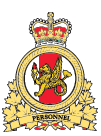 This information has been archived for reference or research purposes.
This information has been archived for reference or research purposes.
Archived Content
Information identified as archived on the Web is for reference, research or recordkeeping purposes. It has not been altered or updated after the date of archiving. Web pages that are archived on the Web are not subject to the Government of Canada Web Standards. As per the Communications Policy of the Government of Canada, you can request alternate formats on the "Contact Us" page.
Book Reviews
Deserters And Draft Evaders: French Canadians And Military Justice (1914-1918)
by Patrick Bouvier
Outremont, Éditions Athéna,
Military History Collection
149 pages, $ 14.95
Reviewed by Major Michel Litalien
For more information on accessing this file, please visit our help page.
 Since 1994, the year of the first Military History Colloquium
on French Canada and Contemporary Conflicts, a plethora of Master’s
theses, doctoral theses and publications on the subject have appeared,
contributing to filling this “black hole” in the collective
memory of Quebeckers. As part of this wave, Patrick Bouvier, the
young holder of a Master’s degree in History from the University
of Québec at Montréal, sets out to analyze the French-Canadian
soldiers of the Canadian Expeditionary Force from a new angle.
Since 1994, the year of the first Military History Colloquium
on French Canada and Contemporary Conflicts, a plethora of Master’s
theses, doctoral theses and publications on the subject have appeared,
contributing to filling this “black hole” in the collective
memory of Quebeckers. As part of this wave, Patrick Bouvier, the
young holder of a Master’s degree in History from the University
of Québec at Montréal, sets out to analyze the French-Canadian
soldiers of the Canadian Expeditionary Force from a new angle.
Wishing to put an end to the preconceived ideas and legends that have endured since the First World War, according to which many French-Canadian soldiers avoided joining up and went AWOL once they had enrolled, Bouvier has taken an interest in deserters and the military justice that faced them. For many Canadians, the deserter or the draft evader was neither more nor less than a quitter, even a coward. But in Quebec the deserter has long been respected and many have made him symbolic of a hero defying Anglophone federal authority. This image of the deserter and the recollection of conscription have completely obscured the war effort by the other soldiers.
Bouvier’s interest in this subject first became the subject of a Master’s thesis, which he then reworked and filled out in order to publish the present work. It is in four parts. The author begins by surveying the historiography on the subject, both in Canada, where it is all too rare, and in Europe, where it is more abundant. In the second part, he gives a detailed study of the rules of British discipline, the Army Act, to which Canadian soldiers were subject during the First World War. The third part clearly defines what a deserter is and differentiates him from the resister (conscientious objector or draft evader). The last part looks at the case of French-Canadian deserters properly so-called – what they did and what they were.
This work is a sociological study. Given the scarcity of in-depth studies on the subject, Bouvier had to be content, in particular, with consulting the personal files of the “criminals” (about 148 alleged deserters) to make a detailed analysis of them. Although these personal files constitute the heart of the study, perhaps it would have been appropriate to consult other sources – for example, newspapers. We could thus have had greater knowledge of how the problems related to desertion and draft evasion in French Canada during and after the war were perceived. This omission, however, takes nothing away from the quality of this work.
This pocket-size book is well written and a very pleasant read. Bouvier has a good knowledge of his subject and deals skilfully with the information he has drawn from the archival holdings that have already been extensively worked. In his conclusion, he very forcefully overturns the widespread idea that Francophone soldiers deserted in large numbers; only 61 French Canadians were found guilty of desertion! It remains to be hoped that one day as extensive a study will be published dealing with the whole of the Canadian Expeditionary Force.
![]()
Major Michel Litalien works at the Directorate of History
and Heritage where he is Staff Officer, Museums and Historical
Collections.






